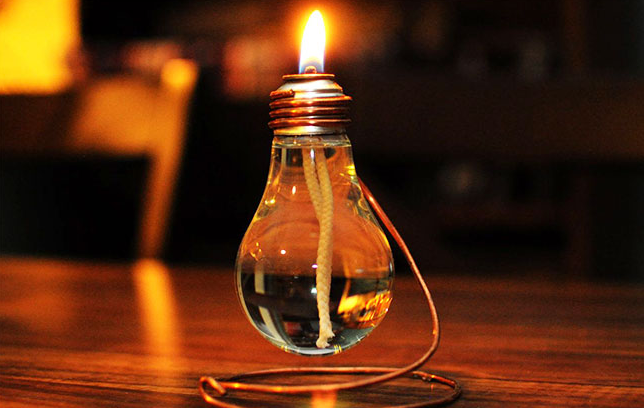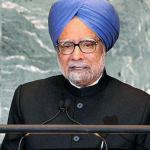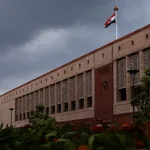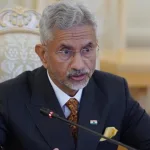The unrelenting power crisis in Kashmir is a pressing issue that continues to inflict untold misery on its people. Decades of promises, hopes, and schemes have failed to deliver the basic necessity of 24×7 electricity to the region. Generations have grown up with the same narrative—unkept promises about improved power infrastructure and distribution. From children to adults, the cycle of disappointment remains unchanged, leaving ordinary Kashmiris to endure harsh winters and frequent outages with minimal respite. While Kashmiris are braving the harshest winter of record freezing temperatures lack of electricity adds to their misery.
Broken Promises amid Harsh Winters
For decades, successive governments have promised to resolve the power crisis in Kashmir, yet the situation has only worsened. While metered areas have been introduced to curb power theft, they too experience erratic electricity supply. The reality is disheartening in metered areas where residents diligently pay their electricity bills, frequent power cuts continue unabated, leaving people questioning the rationale behind these outages.
Winter, a season that lasts longer and bites harder in Kashmir, exacerbates the plight of its people. When temperatures plummet and snow blanket the region, electricity becomes a lifeline for survival. Yet, it is precisely during these times that the power supply dwindles to its lowest. In the absence of electricity, families struggle to stay warm, cook meals, or even see through the long, dark nights.
Impact on Healthcare: Patients Bear the Brunt
The power crisis has far-reaching consequences beyond just household inconveniences—it jeopardizes lives. Hospitals and healthcare facilities are among the worst affected, as they rely heavily on electricity to operate life-saving equipment. From oxygen concentrators to ventilators and essential monitoring devices, power outages put patients’ lives at risk.
For patients dependent on electricity-driven medical equipment at home, the situation is even more precarious. The absence of power during harsh winters can lead to dire consequences, forcing families to either procure costly backup generators or resort to alternative, unreliable sources of power. Such conditions are untenable, especially for those already burdened with high medical expenses.
Economy and Pesky Power Cuts
Kashmir’s economy, which depends heavily on agriculture, handicrafts, and tourism, also suffers due to the unreliable power supply. Small-scale industries and artisans, who form the backbone of the local economy, find it impossible to sustain their livelihoods without consistent electricity. Handicraft workers who rely on machines, such as looms, face disruptions in production, leading to delays in fulfilling orders and financial losses. Tourism, a major contributor to Kashmir’s economy, takes a hit as well. Hotels, houseboats, and guesthouses cannot offer uninterrupted power supply to visitors, which negatively impacts the experience of tourists. The cascading effect of an unreliable power supply is not only financial but also reputational, as word spreads about the challenges of visiting the region.
The Excuse of Power Theft: A Convenient Scapegoat?
The authorities often cite power theft as a major reason for the ongoing crisis, painting it as an insurmountable obstacle to achieving 24×7 electricity. While power theft undeniably occurs, it is not a valid excuse for failing to provide basic services in metered areas where people pay for electricity. Using this excuse, authorities divert attention from their own inefficiencies, such as outdated infrastructure, mismanagement, and lack of investment in renewable energy sources. Moreover, the argument ignores the broader context: why should the entire population suffer due to the actions of a few? It is the responsibility of the administration to enforce regulations and prevent theft, not to penalize law-abiding citizens by depriving them of a basic necessity.
Policy Failures and Administrative Apathy
The crux of the power crisis lies in policy failures and administrative apathy. Despite having abundant water resources that could be harnessed for hydroelectric power generation, Kashmir continues to import electricity from other regions. The lack of investment in local power generation infrastructure is a glaring oversight that has left the region perpetually dependent on external sources. Additionally, the transmission and distribution losses remain alarmingly high due to an outdated grid and poor maintenance. Frequent breakdowns and the inability to upgrade the system have further compounded the problem. Even when new power projects are announced, they are often delayed by years, leaving the region in a perpetual state of power scarcity.
The Plight of Ordinary Kashmiris
For the ordinary Kashmiri, the power crisis is not just an inconvenience—it is a daily struggle for survival. With no electricity, children cannot study after sunset, businesses come to a halt, and families are forced to endure bone-chilling temperatures without any heating. The situation becomes particularly dire for low-income households, which cannot afford alternative sources of power such as generators or inverters. This perpetual state of deprivation fosters a sense of hopelessness and frustration among the populace. Decades of unfulfilled promises have eroded trust in the authorities, leaving people to wonder whether the dream of uninterrupted power supply will ever become a reality.
The Way Forward
- A Call for Action: Investment in Renewable Energy- Harnessing Kashmir’s abundant natural resources, such as water and solar energy, could provide a sustainable solution to the power crisis. Investing in hydroelectric power plants and solar farms would not only meet local demand but also position Kashmir as an energy exporter in the long term.
- Modernizing Infrastructure: Upgrading the outdated transmission and distribution network is crucial to reducing losses and ensuring efficient power delivery. Modern technology, such as smart grids, should be deployed to monitor and manage the system more effectively.
- Curbing Power Theft without Penalizing the Innocent: Authorities must adopt stricter measures to prevent power theft, such as deploying advanced metering systems and conducting regular audits. However, these efforts should not come at the cost of depriving law-abiding citizens of electricity.
- Reliable Backup Systems for Healthcare: Hospitals and healthcare facilities must be equipped with reliable backup systems to ensure uninterrupted power supply. The government should subsidize these systems for smaller clinics and homes where patients rely on electricity-driven medical equipment.
- Public Awareness Campaigns: Educating the public about the importance of energy conservation and the consequences of power theft can foster a sense of responsibility among citizens. Such campaigns should also highlight the steps being taken to improve the power supply, thereby rebuilding trust in the system.
- Accountability and Transparency: The administration must be held accountable for its failures, and any progress in addressing the power crisis should be communicated transparently to the public. Setting clear timelines and sharing updates on power projects can instill confidence among the people.
Conclusion
The power crisis in Kashmir is a multi-faceted issue that demands immediate and sustained attention. It is not just about electricity; it is about the quality of life, economic stability, and the dignity of the people. Decades of neglect have left the region in a perpetual state of power scarcity, forcing its residents to endure harsh winters and disrupted lives. Addressing this crisis requires a collective effort from the government, private sector, and the public. With the right policies, investments, and accountability measures, the dream of 24×7 electricity for Kashmir can become a reality. Until then, the miseries of ordinary Kashmiris will continue, a stark reminder of the region’s long-standing struggle for basic necessities.
(Author besides being a medical doctor at Mubarak Hospital is a member of group of concerned citizens, columnist, contributing actively in positive perception management of various moral, social and religious issues. He can be reached at: [email protected] & twitter @drfiazfazili)








